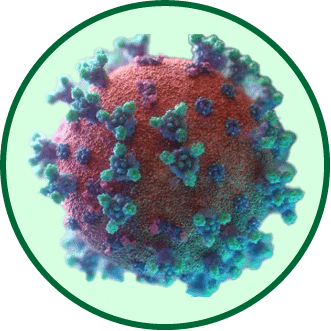Sleep Quality and Energy: Deciphering the Indispensable Connection
Introduction:
In our relentless quest for energy and vitality, one fundamental aspect often takes a backseat - sleep. The quality of our slumber isn't just about clocking hours; it's intricately tied to our energy levels, cognitive function, and overall health. This comprehensive guide delves into the critical link between sleep quality and energy, elucidating how enhanced sleep hygiene can transform our wakeful hours into periods of productivity, vivacity, and sustained wellness.
1. The Science of Sleep: More Than Just Rest
- Sleep Cycles Unveiled: Understanding sleep involves decoding the stages, from light sleep to REM (rapid eye movement), each contributing uniquely to physical restoration and mental clarity.
- Regenerative Power: High-quality sleep triggers essential physiological processes, including cellular repair, memory consolidation, and the release of growth hormones, directly influencing daytime energy.
- Keywords: sleep cycles, REM, physical restoration, mental clarity, cellular repair, memory consolidation, growth hormones.
2. Sleep Deficiency: The Energy Drain
- Chronic Fatigue: Insufficient sleep doesn't just leave you tired; it affects cognitive functions, emotional balance, and the body's ability to recover from stress, leading to a perpetual state of fatigue.
- Metabolic Disruption: Poor sleep can disrupt metabolic health, impairing glucose metabolism and altering hunger hormones, which can sap your energy.
- Immune System Fallout: Continued lack of restorative sleep can weaken your immune system, making the body more susceptible to infections that can drain energy.
- Keywords: chronic fatigue, cognitive functions, metabolic health, glucose metabolism, hunger hormones, immune system.
3. Enhancing Sleep Quality: Strategies for Restful Nights
- Regularity is Key: Sticking to a consistent sleep schedule, even on weekends, helps regulate your body's internal clock, leading to easier sleep onset and more restorative sleep.
- Sleep-Inducing Environment: Creating a serene sleep environment — cool, dark, and quiet — can significantly enhance sleep quality. Consider quality mattresses, blackout curtains, and noise-cancelling devices.
- Pre-Sleep Routine: A pre-sleep ritual, like reading or a warm bath, signals your body it's time to wind down.
- Mindful Eating and Drinking: Avoiding heavy meals, caffeine, and alcohol close to bedtime can prevent sleep disturbances.
- Keywords: consistent sleep schedule, internal clock, sleep-inducing environment, pre-sleep routine, mindful eating, caffeine, alcohol.
4. The Tech-Sleep Conundrum: Navigating Modern Challenges
- Blue Light Dilemma: Screens emit blue light that can interfere with melatonin production, disrupting sleep. Limiting screen time before bed and using blue light filters can mitigate this issue.
- Tech-Free Zone: Make the bedroom a technology-free area to reduce electromagnetic interference and promote relaxation.
- Wearable Sleep Trackers: While technology can impede sleep, certain advancements like sleep trackers can provide insights into sleep patterns and quality.
- Keywords: blue light, melatonin production, screen time, tech-free zone, sleep trackers, sleep patterns.
5. Seeking Professional Guidance: When to Consult a Specialist
- Recognizing Sleep Disorders: Conditions like insomnia, sleep apnea, and restless leg syndrome require professional diagnosis and management.
- Cognitive Behavioral Therapy for Insomnia (CBT-I): This evidence-based treatment can be highly effective for sleep issues, particularly insomnia.
- Medicinal Considerations: Some individuals may require medications or supplements to improve sleep; however, these should always be used under medical supervision.
- Keywords: sleep disorders, insomnia, sleep apnea, restless leg syndrome, Cognitive Behavioral Therapy, medications, supplements.
Conclusion:
Quality sleep is an unignorable cornerstone of energy and health, demanding as much attention and care as diet or exercise. By understanding the profound impact of sleep on energy and implementing strategies to enhance sleep quality, individuals can enjoy improved vitality, mental acuity, and overall quality of life. However, persistent sleep issues should prompt consultation with a healthcare professional or sleep specialist to identify potential underlying disorders and appropriate treatment strategies.
(Note: This article is intended for informational purposes only and does not constitute medical advice.)
Keywords: cornerstone, energy, health, vitality, mental acuity, healthcare professional, sleep specialist, underlying disorders, treatment strategies.
